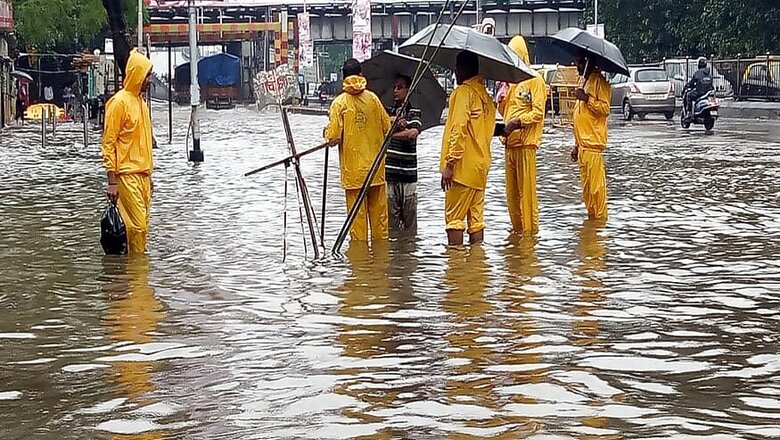
views
In a South Korean documentary made in the 1990s, the climax shows the protagonist running away from a bunch of gangsters into his house. As he enters his home and sees his rich but corrupt father, he asks with a bit of exhaustion “Can you please help me?” A moment later a bullet pierces through him as he has just about completed that question. The murderer, it turns out, was his own father.
That in effect is Mumbai today.
The protagonist is the everyday citizen while the gangsters are the numerous challenges he has to go through daily with regard to travel, health, education etc. The father is the state agency and the city’s municipal corporation.
Mumbai city has a lot of romance attached to it. It is the place everyone in India believes there is opportunity to make it big. The place houses the richest industrialists, sportsmen, stock market as well as its popular export, Bollywood.
There is also the other side to it of most migrants living in despicable slums and working as laborers, domestic helps, security guards etc. For the majority of such residents, life is a miserable existence that goes on daily.
Today, the city has collapsed. An unholy nexus of politicians and contractors have destroyed the road infrastructure. The corruption at the municipal corporation has allowed the mushrooming of slums and grabbing of footpaths by vendors. Builders who are the major contributors to the BMC budget (even more than property taxes) through purchase of fungible FSI have been allowed to grab land with utmost ease.
Licenses are given indiscriminately at a fixed bribe level. Infrastructure like a monorail is built only to realize that is not financially feasible. Contracts of over 100 crore are given to companies who don’t even have a website. There is widespread anger and frustration as everything falls apart at the same time. The surprise is not that it’s happening now but that it took so long to occur.
The rot had been set long ago. The city has been a cash cow that has been plundered by everyone at the top of the political and bureaucratic class.
With the daily loot it is now barely a city to live in. The element of it being cosmopolitan has turned out to be of little comfort. Corporate heads complain that their best staff doesn’t want to live in Mumbai anymore. Business houses have expanded outside of the city into other emerging states over the last two decades. Manufacturing jobs disappeared from the city a long time ago due to self-inflicted wounds.
The only reason the headquarters of finance, banking, diamonds, films, large companies lies yet in Mumbai is that an ecosystem has existed for business in those sectors and it is always tougher to shake that off. Private interactions with business houses give more than an indication that they have resigned to the death of the city and are looking at other cities even for their HQ. Finance and banking will move wherever business shifts.
All this is beginning to show up in the budget of the municipal corporation, BMC, which has seen its budget drop from 37,000 crore to around 26,000 crore in the last two years as real estate activity comes to a grinding halt.
Enter the role of visionary Chief Ministers who are willing to take on that mantle. Much like Narendra Modi got Tata Nano under the nose of everyone else during its crisis days in West Bengal, there is room for others to replicate that effort. Leaders like Chandrababu Naidu, the CM of Andhra Pradesh, have always given an indication of making their state like a Malaysia or Singapore.
It is debatable if they possess the skills of a Mahathir Mohamad or Lee Kuan Yew, yet it will be churlish to deny that Naidu works to a grand plan. Even Maharashtra, of which Mumbai is a part, can develop cities that can fill the vacuum left by Mumbai.
In an ironical and depressing twist, the only thing that can further this tragedy is the involvement of spirited activists to reclaim Mumbai from its thieves. Someone must whisper in their ears – the city is beyond redemption. They must help alight the body, not try to bring it back from the crematorium. Dead bodies are not left for long before the fire is lit.
(Written by an ordinary Mumbaikar. The views expressed in this article are personal.)














Comments
0 comment